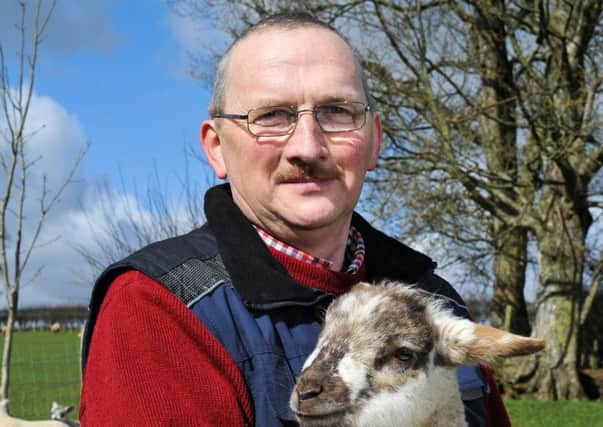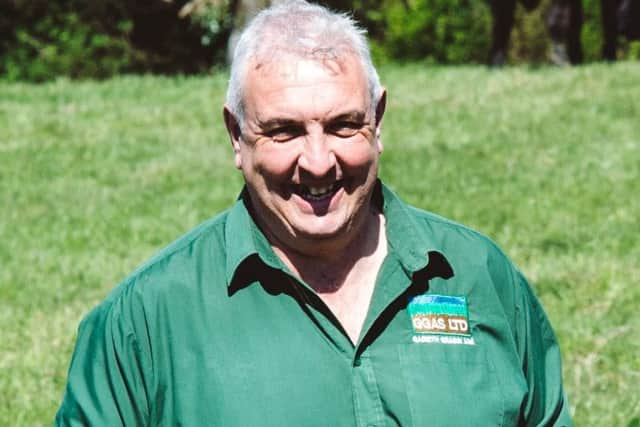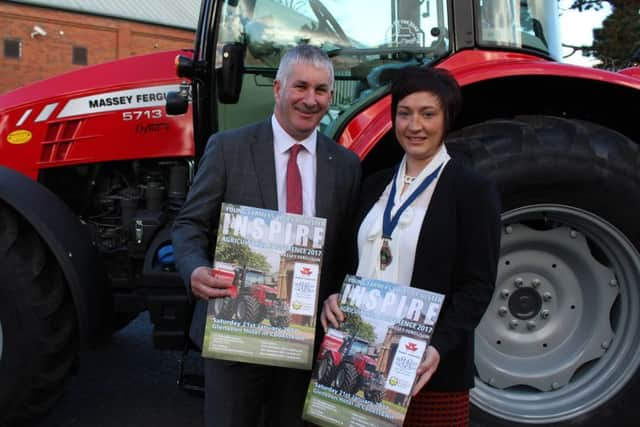Tremendous turnout expected for YFCU '˜Inspire' conference


“And we are well on the way to reaching this target,” confirmed the organisation’s president, Roberta Simmons.
“The event represents a key starting point for YFCU in 2017. The conference will be of interest to farmers of all ages and I am delighted that we have support of sponsors such as Massey Ferguson and the UFU to help make this a reality.
Advertisement
Hide AdAdvertisement
Hide Ad“The mix of conference presentations, workshops and farm visits makes the event quite unique. It constitutes a tremendous learning experience. Events culminate with the conference dinner on the Saturday evening.”


The day will begin with visits to three case study farms, all of which are at the forefront of their respective sectors. The farms in question are the specialist beef production business managed by the McCrea family from Cookstown, Moneyhaw Holsteins, Moneymore and The Jungle NI at Tobermore.
The afternoon will comprise a choice of four presentations. These will cover a wide range of topics from improving sheep margins through to the uptake of new technology. One not to miss will be the presentation on soil management, given by the truly inspirational Gareth Davis. He is a man with a highly contagious enthusiasm for this topic!
Roberta Simmons concluded: “I feel that all areas of this educational and enlightening day will give everyone attending a great deal of inspiration to face a new year and a new era in the agricultural world.”
Advertisement
Hide AdAdvertisement
Hide AdThe conference fee, which includes lunch and dinner, is £35 per head for YFCU members; £45 for Ulster Farmers’ Union members and £50 for non-members.


For further information contact YFCU on (028) 90 9037 0713.
The web link to the conference booking page is: yfcuinspire.eventbrite.co.uk.
Dunbia to host three
workshops at YFCU agri conference


Dunbia is the agri-event partner for YFCU and will organise three workshops at the upcoming ‘Inspire’ conference:
Advertisement
Hide AdAdvertisement
Hide AdCastlederg sheep producer, and former Focus Farmer, Isaac Crilly will focus on using new knowledge and technology as part of a best practice procedures within his fast evolving flock management programme. He will also cover the management systems on his farm and the information and technology which he used to radically alter what he was doing, focusing his farm on delivering customer requirements as efficiently as possible. Isaac will also discuss the cost and profit implications of different practices.
Issac and his wife run a 500-strong ewe flock. Nine years ago, he completely changed his system and moved to making his buying decisions based on data selecting performance tested rams which introduced New Zealand genetics rather than UK genetics. He introduced composite breeding to increase prolificacy, durability, performance and easy-care and adopts a philosophy that “no breed is sacred”.
Courtesy of his workshop, noted Welsh grassland management specialist Gareth Davies will confirm that efficient use of grass is one of the most effective techniques to reduce production costs on-farm. He will be outlining the key areas to monitor and the techniques and strategies which can be used to lift grassland performance on nearly any farm. Gareth is a former Nuffield Scholar. He is owner of Gareth’s Grassland Advisory Service (GGAS).


Dunbia’s head of agriculture Jonathan Birnie will focus on the ways by which producers can work together to improve profitability and sustainability. Courtesy of his workshop, he will confirm that high performing producer groups can deliver this. Jonathan will also be discussing the key reasons why groups fail or succeed and what can be done to obtain the benefits while avoiding the pitfalls.
Advertisement
Hide AdAdvertisement
Hide AdHe commented: “As the agri-event sponsor for YFCU, Dunbia is delighted to support the conference this year. Our ethos has always been to support young farmers and inspire them through knowledge transfer to develop their farming operations in a sustainable and profitable manner. We hope that through the Dunbia workshops, the YFCU delegates will be inspired to challenge their own practices and implement best practices where possible.”
Importance of condition scoring cows to be highlighted at YFCU conference
Associate Professor Finbar Mulligan, from the faculty of agriculture and veterinary medicine at University College Dublin, will be one of the key speakers at the upcoming ‘Inspire’ conference, which will be hosted by the YFCU on Saturday January 21st. Courtesy of his presentation, he will relate the findings of the most recent research carried out at the university’s Lyons Estate farm. Mulligan told Farming Life that cows must consume enough energy to maintain Body Condition Score, or BCS, irrespective of their stage in lactation.
“At UCD, we now use a specific rule of thumb. Where lactating cows are concerned, 90% of the group should have a body condition score of between 2.75 and 3.25. For dry cows the equivalent figures are 3.0 and 3.25.
Advertisement
Hide AdAdvertisement
Hide Ad“Cows that are too thin are not securing their daily calorific requirements in full. In such instances, supplementary feed must be made available. And this principle holds equally for both dry and lactating cows.”


He added: “A degree of negative energy balance is inevitable in early lactation. But we must put strategies in place to ensure it’s marginal, of a short duration and not severe and of a long duration.”
Mulligan confirmed that dairy cow nutritional plans need to maximise the input of grazed grass, as it’s the cheapest feed available and its very high in energy and protein, adding: “Higher yielding cows are different from their lower yielding counterparts and must be fed accordingly. Freshly calved cows milking 34 litres, eating 16-17kg dry matter of good quality grass, need 4-5 kg of concentrates to meet their energy requirements. Whereas cows milking 25 litres would not need concentrates on good quality grass.
“However, grass silage is 20% lower in energy than grazed grass. During periods of grass shortage or if cows need to be re-housed due to adverse weather concentrate feeding rates need to be increased to reflect this.
Advertisement
Hide AdAdvertisement
Hide Ad“On average quality grass silage-only diets, cows producing 34 litres need 12kg of concentrates per day. It may prove difficult to get this level of intake into cows in the parlour. Grass silage quality also has a huge bearing on concentrate feed requirements. Better quality grass silages have the potential to lower concentrate requirements by 2.5kg per head per day.”